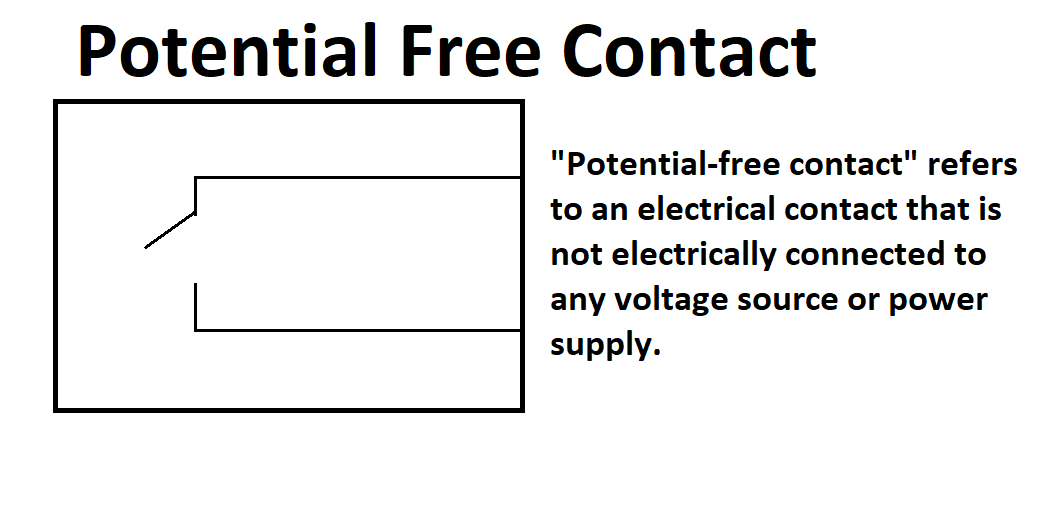"Potential-free contact" refers to an electrical contact that is not electrically connected to any voltage source or power supply.
A potential-free contact, also known as a dry contact or isolated contact, refers to an electrical contact that is not electrically connected to any voltage source or power supply. Instead, it acts as a switch that makes or breaks a connection between two terminals when activated by an external signal.

Here are some key characteristics and applications of potential-free contacts:
-
No Voltage or Power Supply: Unlike contacts in a powered circuit, potential-free contacts do not have a voltage source connected to them. They rely on an external signal or control device to energize or deactivate them.
-
Isolation: Potential-free contacts provide electrical isolation between the control circuit and the controlled circuit. This isolation ensures that signals or voltages from one circuit do not affect the other circuit.
-
Versatility: Potential-free contacts can be used in various applications and systems, including HVAC (Heating, Ventilation, and Air Conditioning) systems, alarm systems, industrial automation, building management systems, and safety interlocks.
-
Compatibility: They are compatible with a wide range of control devices, such as relays, switches, sensors, and control panels. This flexibility allows for easy integration into different types of control systems.
-
Reliability: Potential-free contacts are often preferred in critical applications where reliability and safety are paramount. Since they do not rely on an internal power source, they are less prone to failure due to power supply issues or voltage fluctuations.
-
Safety: Because potential-free contacts do not carry voltage when in the open state, they are safer to handle during installation, maintenance, and troubleshooting compared to contacts in powered circuits.
Overall, potential-free contacts offer a versatile and reliable solution for controlling and monitoring electrical systems and devices while ensuring electrical isolation and safety.

